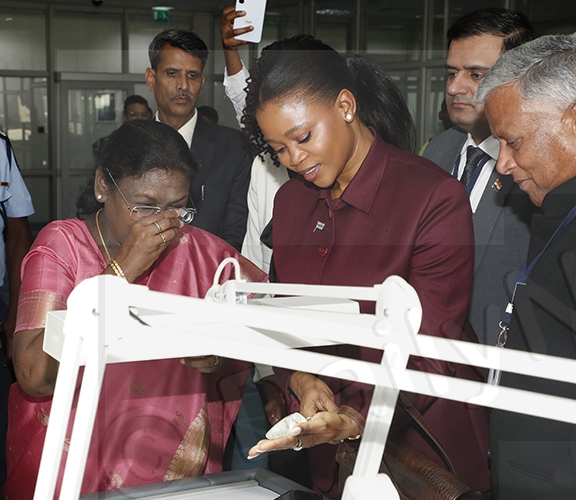Slow implementation of programme worries farmers
21 Mar 2022
Farmers in Ngamiland region have decried the slow implementation of the commodity based trade programme aimed at assisting farmers in Foot and Mouth red zones to participate in the beef market.
The programme is also expected to bring benefits of the leather value chain as it would support farmers in improving animal husbandry practices.
The co-chairperson of commodity based trade programme committee in the region, Mr Charles Madise confirmed in an interview that farmers had complained of the slow progress of the programme.
He said it was launched in 2019 and implementation was supposed to start in 2020, but was suspended due to the COVID-19 pandemic.
Mr Madise said farmers had expressed worry that the cattle industry had been excluded from both domestic and international trade because of Foot and Mouth Disease (FMD).
Through commodity based trade programme, it was expected that farmers would benefit from increased revenues, improved market access and improved use of natural resources.
In response, Dr Odireleng Thololwane, Coordinator of the FMD Unit, explained the programme had long been implemented was currently producing great results.
The government, he said had indicated support for implementing the programme, as it was yielding good results. He said he suspected that the farmers could be lacking understanding on how the concept works or maybe had some expectations, hence they complained about slow implementation.
He called on farmers to come forth and share what was not fulfilled.
Dr Thololwane cited some of the achievements such as the selling of meat to green zone by Botswana Meat Commission in Maun, increasing of buying prices from P19 to P28 per kg and revival of quarantines, and that Maun abattoir had also increased slaughtering rate.
Private abattoirs, he said had also increased the buying price, adding that the use of mechanised transportation vehicles was also in place.With regard to further processing, Dr Thololwane said the initiative was beyond their control as their duty was to only create a conducive environment in terms of trade, animal and public health; among others.
“We have seen a significant improvement since the launch of the programme and I can confirm that even during the FMD outbreak of 2019/20, commodity based trade protocols were used as movement was closed only in the affected areas, while the rest were open for trade. The question could be is the money going directly to farmers,” he added.
Farmers, he said may feel that they had not benefited as expected as most of them were losing money to the ‘middle man’, revealing that it on average, a farmer lost P1000 per animal because they were not organised when it comes to selling their animals. He said farmers preferred to use ‘middle men’ instead of taking their animals to the quarantine because they believe that caring for animals was a challenge.
Dr Thololwane also said transporting of animals to quarantine was a cost to farmers, while transporters were making a killing and he wished farmers could revive cooperatives to take care of the expenses, just like in other regions such as Selebi-Phikwe.
Collective bargaining, he said was ideal in reducing costs and called on farmers to do some benchmarking and assured them of his office’s support. ENDS
Source : BOPA
Author : Esther Mmolai
Location : MAUN
Event : Interview
Date : 21 Mar 2022





